Amandla Stenberg: The best way for me to be a role model is to be as true to myself as possible.
In a new interview with W Magazine, 17-year-old actress Amandla Stenberg dishes on plans to study at NYU, her role in the industry, why she considers Rihanna a role model and being an activist. Peep a few excerpts.
On entering the industry at a young age:
I think getting into the industry was kind of an accidental thing for me. When you grow up in Los Angeles as a kid, you do a lot of different activities, like ballet is one of them, tap is one of them. And because it’s the city of entertainment and Hollywood, people just go on auditions as a fun thing to do. So I started doing that when I was about three or four, because I told my parents that I wanted to do it. And they actually followed through and took me to my auditions and it became something I was very passionate about. I was kind of able to find who I was through being on set. I think it’s a challenging environment because you find kids who are so precocious and so they’re putting on acts a lot of the times. So navigating that was something that was really challenging for me, but also forced me to think about who I was and figure out how to stay grounded at a very young age.”
On keeping things “normal”:
I think that’s also something that’s kind of strange about this time in my life is that I’ve always had my school life and it’s completely normal and my life outside of that which is being on sets and kind of getting attention from the media and everything. And now it’s like my two lives are merging because I’m moving forward and I’m graduating and I need to figure out how to keep that feeling of being grounded without having the normal environment. And I think definitely going off to college, to NYU, will help, but it will be different because everyone will meet me as who I am now with a perception of who I am and how I’ve been presented in the media and articles about me and followers on Instagram and all of that as opposed to when I met everyone who I go to school with now and no one cared about any of that. I’m a little bit nervous about it, but I think in some ways it will actually be kind of relieving. Like I’ve appreciated this sense of being grounded but it can be exhausting sometimes to live these two different realities. And it will be nice to just be one person as opposed to my school self and my everything else self.
On her short movie “Blue Girls Burn Fast”:
It’s pretty personal to me. I see a lot of myself reflected in the main character. Just because growing up in a certain industry has forced me to grow up very quickly. And [there’s the idea of] saying goodbye to my childhood at a very early age. And so I wrote this story about this foster kid who experiences moving out of her childhood home, which I was also experiencing, she experiences the loss of her childhood home, probably at a much earlier age than I did. And she navigates what it’s like to be living in a house with someone that’s not your family. And she learns, basically, through this mysterious girl who climbs through her window, that she has to let go of the past and she kind of has to let go of this nostalgia that she’s holding onto in order to move forward.
On being an activist:
I guess I was raised as an activist in the sense that my mom is a black woman who refuses to be victimized and does her thing and believes in her own power and her own strength, I think that’s been a model for me in terms of how I perceive my own identity. I never really talked about issues and prejudice publicly until that video came out and it went viral. And that’s because I kind of came to a crossroads where I realized I had a choice to either continue speaking out about that or to remain silent. That video actually did become viral accidentally. I guess everything goes viral accidentally. But it was a particular accident because I made it for my school, for my history class. And then I posted it online, not really thinking about it, just thinking maybe some people would appreciate it and then it went crazy. And so, yeah, then I came to that choice of okay, well people are really responding to this and it wasn’t like I had made an active decision before to not speak up about things, I just didn’t realize I had all of this power from the platform I had. I didn’t realize that I could really utilize it to speak out about things until the video. And so then I began using it more.
On the pressure of being a role model:
I do feel that pressure and I’m learning how to deal with it still. But I realize that people can be role models in all kinds of ways and often the way that they are a role model is just by being true to themselves. I had the chance to go to the Black Girls Rock awards the other night in New York and Rihanna was getting this award for a rock star. And basically Black Girls Rock is all about being role models for black girls. And when she got on stage she was like, “I really appreciate this award because I don’t normally get awards for being a role model.” And I was thinking about that and then I had the chance to talk to her afterwards. And I was like, “You really are a role model and you probably don’t realize it. You’re a huge role model to teenage girls who experience all kinds of crap for enjoying their sexuality, for being themselves, for getting what they want, for not letting the perceptions of men get in the way of what they want to do.” And I told her that she was a role model in that way and that she’s been a role model to me oftentimes when I’ve been navigating high school, letting boys dictate what I wear or how I present myself or what I decide to do and being afraid that they will judge me. But then a Rihanna song comes on and I don’t care about that anymore. And so I realized that basically the best way for me to be a role model is to be as true to myself as possible. And that doesn’t mean I have to achieve some kind of image or be this icon or mold myself into a role model. It just means I have to keep doing my thing. Oftentimes your authenticity is your activism and being as true to yourself as possible is the first step toward revolution.
On beauty representations and not seeing people who look like her:
Man, when I was little, I wish that I had seen a black girl on a billboard. So I’m glad it can be me. Just by putting myself out there and providing the representation and building the self-confidence of other young girls is cool and I’m glad I can do that.
On all of her creative outlets:
I think it helps that they’re all interconnected and so my acting fueled my passion for being a director. And when it comes @arthoecollective, it’s about providing a space for people of color to share their art. And the band is another extension of my artistic self. So I think oftentimes all of my artistic endeavors and my activism they all just culminate into this one goal, which is to provide space and provide the support and representation of black female artists. So it’s just about shining the light, doing my thing, so other people can feel comfortable to do the same thing.
Click here for the full interview.
By –@andreadiggs



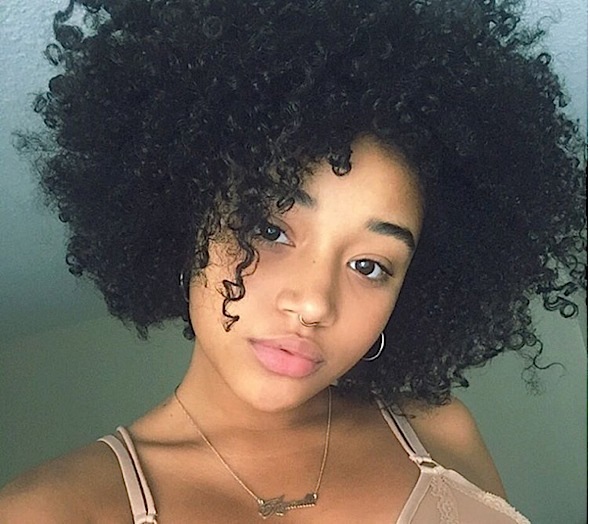
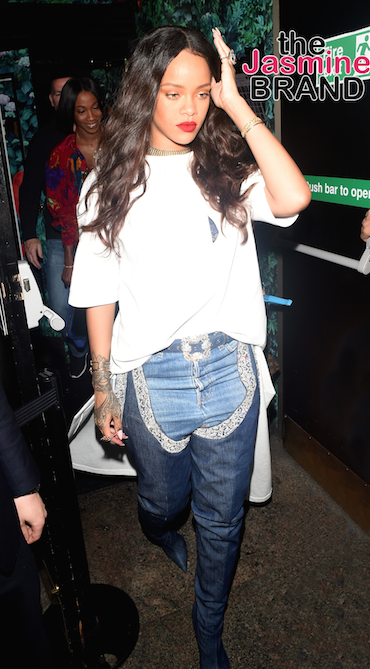
 Previous Article
Previous Article Next Article
Next Article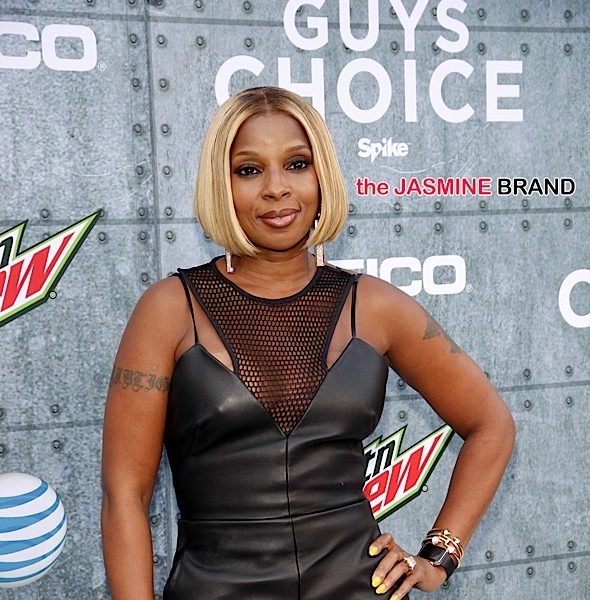 Mary J. Blige To Receive Star On Hollywood Walk of Fame
Mary J. Blige To Receive Star On Hollywood Walk of Fame 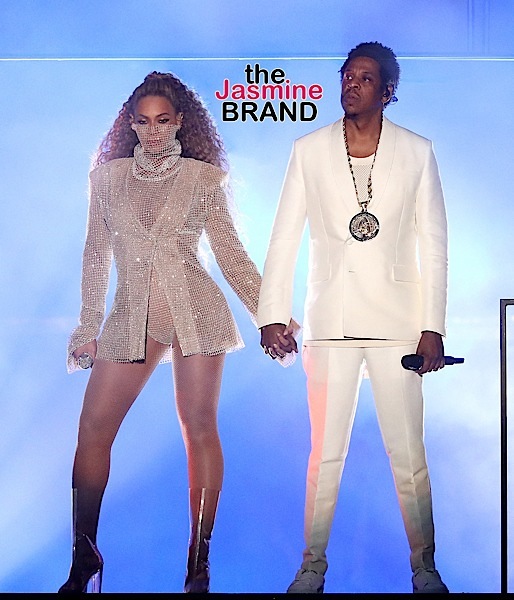 Beyonce & Jay Z – Drunk Fan Runs On Stage During Concert, Dancers & Crew Jump In + Couple Speaks Out: We Will NOT Press Charges
Beyonce & Jay Z – Drunk Fan Runs On Stage During Concert, Dancers & Crew Jump In + Couple Speaks Out: We Will NOT Press Charges ![KDAY’s KRUSH Groove: Ashanti, Ja Rule, DJ Quik & More Hit the Stage! [Photos & Footage]](https://thejasminebrand.com/wp-content/uploads/2017/04/Screen-Shot-2017-04-24-at-12.13.56-PM.png) KDAY’s KRUSH Groove: Ashanti, Ja Rule, DJ Quik & More Hit the Stage! [Photos & Footage]
KDAY’s KRUSH Groove: Ashanti, Ja Rule, DJ Quik & More Hit the Stage! [Photos & Footage] 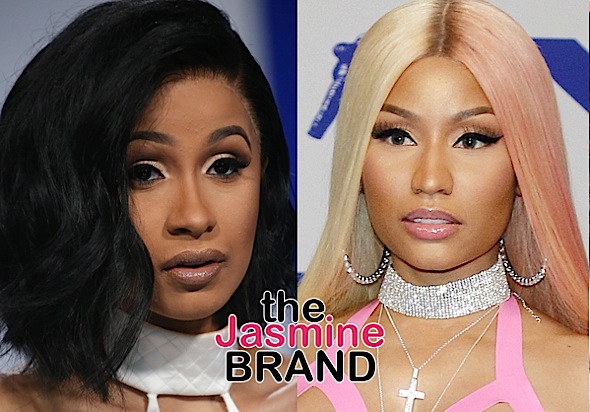 Cardi B Reveals Why She Chose To Confront Nicki Minaj At Fashion Week – “I Wasn’t Going To Catch Her In The Grocery Store”
Cardi B Reveals Why She Chose To Confront Nicki Minaj At Fashion Week – “I Wasn’t Going To Catch Her In The Grocery Store” 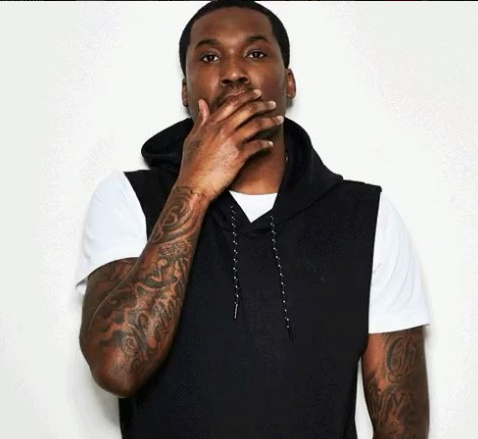 Meek Mill Drops New EP “Legends Of The Summer”
Meek Mill Drops New EP “Legends Of The Summer” ![[WATCH] Jay-Z Continues Unorthodox Marketing, Perform 6 Hours Straight In Art Gallery, Snags Taraji P. Henson](https://thejasminebrand.com/wp-content/uploads/2013/07/Screen-shot-2013-07-10-at-6.12.08-PM-620x600.png) [WATCH] Jay-Z Continues Unorthodox Marketing, Perform 6 Hours Straight In Art Gallery, Snags Taraji P. Henson
[WATCH] Jay-Z Continues Unorthodox Marketing, Perform 6 Hours Straight In Art Gallery, Snags Taraji P. Henson 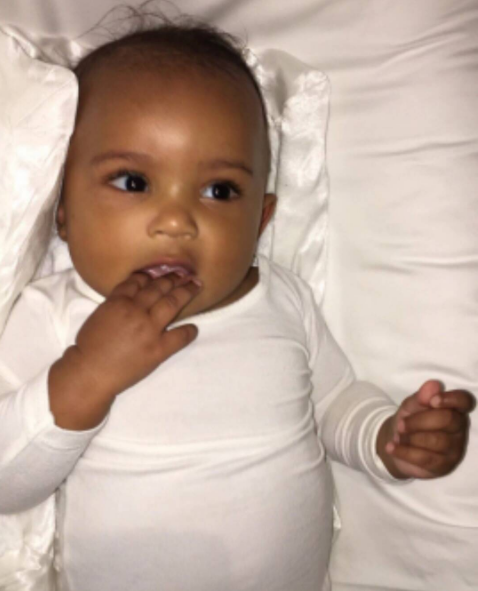 Kim Kardashian Shares New Photo of Saint West!
Kim Kardashian Shares New Photo of Saint West! 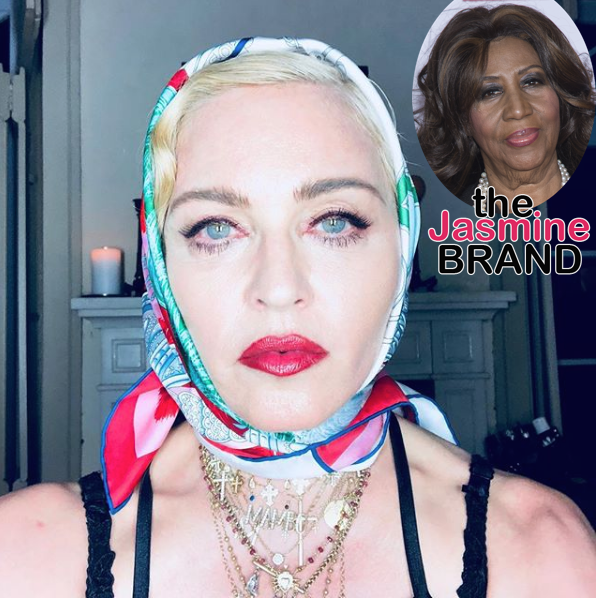 Madonna Responds To Backlash Over Aretha Franklin Tribute – “People Are So Quick To Judge”
Madonna Responds To Backlash Over Aretha Franklin Tribute – “People Are So Quick To Judge”